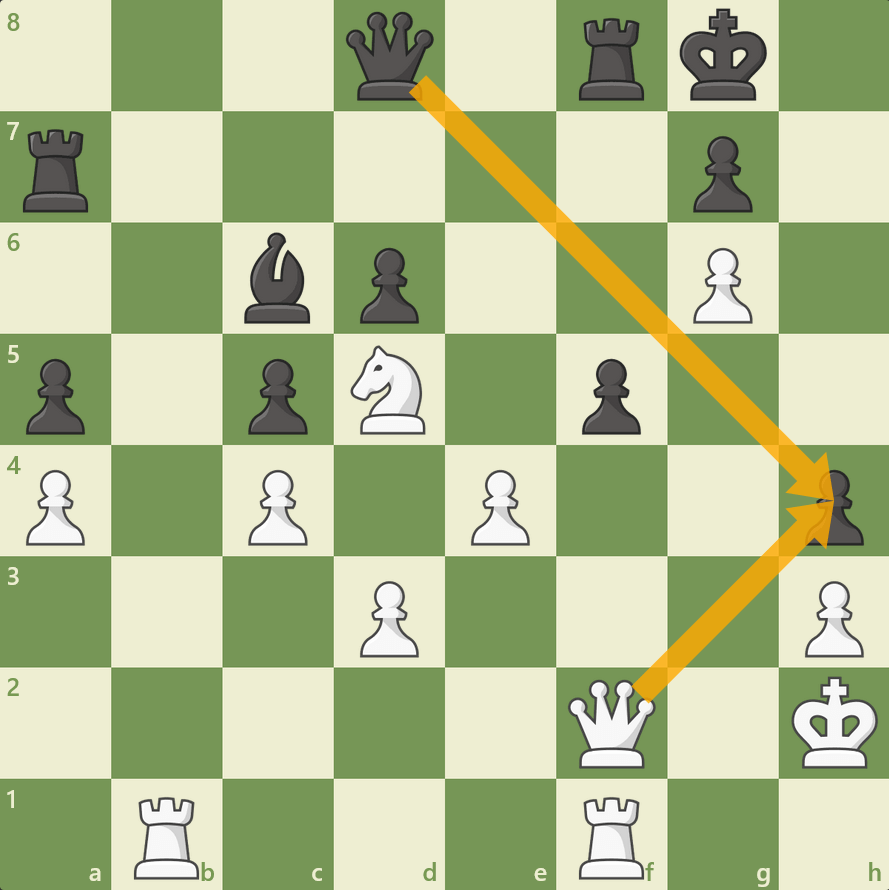
Deflection
Deflection? What does that have to do with chess? There are many different types of chess tactics, but what is a deflection in chess? Let's find out!
Here is what you need to know about deflection:
What Is A Deflection In Chess?
A deflection is a tactic that forces a piece away from a specific duty or square that is important. After the deflection is performed and the piece is forced away from the important square, another operation can be carried out that wasn't possible before.
In the following position, the black king on e8 is the only piece defending the queen on d8.

White would like to capture the queen on d8 but without exchanging their own queen. But how? The answer is to deflect the black king away from the defense of the black queen with a check from the bishop!

Bxf7+ forces Black to recapture the bishop on f7 to get out of check (all other moves are illegal). After the king captures the bishop, the queen is no longer protected!

This deflection was performed to force the black king away from e8 to win the queen! Now that you know what a deflection is, let's find out why it is important.
Why Are Deflections Important?
Deflections are important tactical resources because they can help you win material or achieve another goal (like promoting a pawn or delivering checkmate).
In the endgame, pawns are commonly used as a deflection. In the following position, White is up a pawn, and the black king is overloaded (it has to do too many tasks simultaneously). The black king has to stop the passed pawn on h5 and protect their own pawn on e6.

White can use the passed pawn as a deflection, and force the black king over towards it. When this happens, White can use their king to attack and win the now unprotected black pawn and promote their e5-pawn!

Deflections can also be used for the aim of delivering checkmate. In the following position, White wants to capture the pawn on h4 and then deliver checkmate on h7. The only problem is the queen on d8 that is protecting the h4-pawn.

White can deflect the black queen from the defense of the h4-pawn by moving their rook to b8!

After Black's queen captures the rook, White captures the h4-pawn and delivers checkmate.

Test
Now that you know what a deflection is and understand why it is important, let's test your skills! In the following position, Black's queen on e7 is defending against the mate threats on f8 and h7. How can White deflect the black queen?

Yes! Rf8+ deflects the black queen from e7 by forcing Black to capture the rook with their queen!

After Black captures the rook on f8, checkmate is delivered on h7.

OK! Let's try one more test! In the following position, White's aim is to win the black queen on d6, but it is defended by the black rook on d8.

How can we win the black queen? With a deflection, of course!

After Re8+, Black must capture the rook (or move their queen to f8 to block the check, and then we win the queen anyway). After Black captures White's e8-rook with their d8-rook, White wins the queen!

Conclusion
You now know what a deflection is, why deflections are important and how to use them to great effect! Enjoy this new knowledge in your own games, and may you find many winning deflections!







